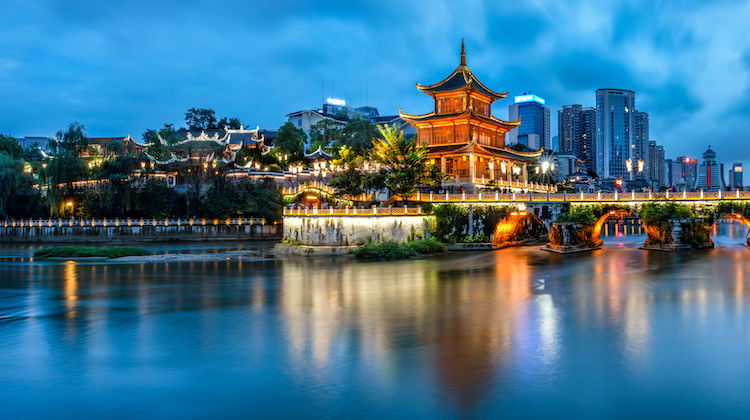Chinese New Year
Chinese New Year(新年; [Xīnnián]), also known as Lunar New Year and Spring Festival(traditional Chinese: 春節; simplified Chinese: 春节; [Chūnjié]), is the most important and biggest festival that celebrates the beginning of a new year on the traditional Chinese calendar.
When: First day of the first month of the Chinese calendar (between 21 January and 20 February)
Chinese New Year Customs: On New Year’s Eve of the Chinese New Year, family members get together to celebrate and have the annual reunion dinner(traditional Chinese: 團圓飯; simplified Chinese: 团圆饭; [Tuányuán fàn]). It is considered the most important meal of the year.
Before New Year’s Eve, people do a detailed cleaning of their house, in order to sweep away any bad energy and to welcome a new year. Another ritual is to hang up spring couplets(traditional Chinese: 春聯; simplified Chinese: 春联; [Chūnlián]). The spring couplet is usually written in black ink on red paper and expresses best wishes for the coming year.
At Chinese New Year, it’s tradition to give red envelope (traditional Chinese: 紅包; simplified Chinese: 红包; [hóngbāo]) with money in it to family. When you were a kid, you would get a lot of red envelopes. As you grow up and start to make money, you are going to give red envelopes to your parents, younger relatives, and even your friends' kids.
Qingming Festival
The Qingming festival(traditional Chinese: 清明節; simplified Chinese: 清明节; [Qīngmíng jié]), also known as Tomb-Sweeping Day, is a day to remember one’s ancestors when families visit the tombs of their departed family members to clean the place, pray and offer sacrifices.
When: 15th day from the Spring Equinox, either 4, 5, or 6 April
Many families travel to rural areas to visit the family columbarium. Apart from cleaning the tomb, people burn incense and paper money as part of rituals.
Dragon Boat Festival
Dragon Boat Festival(traditional Chinese: 端午節; simplified Chinese: 端午节; [duānwǔ jié]), also known as Double Fifth Festival, is a traditional Chinese holiday which usually falls in June. You might have heard about dragon boat racing and eating zongzi, but did you know the story behind them?
When: 5th day of the 5th month of the Lunar calendar
The Origin of Dragon Boat Racing and Zongzi: The story best known is that the festival commemorates the death of the patriotic poet and minister Qu Yuan of Chu Kingdom during the Zhou Dynasty. When Qu Yuan committed suicide by drowning himself in the Miluo River, a lot of people raced out in their boats to save him when they heard the news —— this is believed to be the origin of dragon boat races.
Many people also dropped balls of sticky rice into the river so that the fish would eat them instead of Qu Yuan's body —— this is said to be the origin of zongzi.
Dragon Boat Festival customs: Apart from eating zongzi and dragon boat races, there are many traditional customs which include Egg-balancing —— balance an egg on its end at exactly 12 noon on Dragon Boat Festival day, it is believed that you will receive one full year of good luck. Wearing fragrant sachets is another old tradition that children wear fragrant sachets in order to repel insects and ward off evil.
Mid-Autumn Festival
The Mid-Autumn Festival(traditional Chinese: 中秋節; simplified Chinese: 中秋节; [Zhōngqiū jié]), is celebrated on the 15th day of the eighth month of the lunar calendar, usually falls between mid-September to early October of the Gregorian calendar.
On this day, it is believed that the moon is at its brightest and fullest size and therefore it’s a holiday for friends and family to gather and watch the moon. In Taiwan, barbecues have become a popular activity at the Mid-Autumn Festival.
Mooncake(traditional Chinese: 月餅; simplified Chinese: 月饼; [Yuèbǐng]), also plays an important role in Mid-Autumn Festival. Mooncakes are a pastry typically filled with a sweet filling such as sweet red bean, egg yolk, or lotus seed.
Let’s have a quick recap of what we have learned.
- Chinese New Year - usually in January and February
- Qingming Festival - April
- Dragon Boat Festival - June
- Mid-Autumn Festival - between mid-September to early October
Next time, why not join and celebrate an upcoming Chinese holiday?







